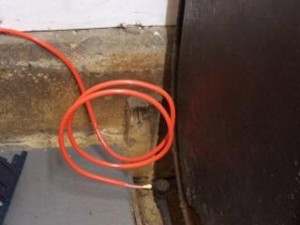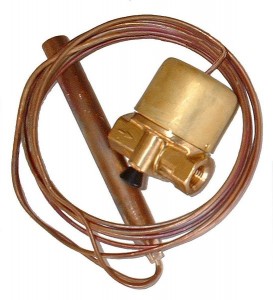One of my home inspection resources, Ray Jackson of Jackson Home Inspection forwarded me this important information regarding the new law in Massachusetts effective 9/30/2011 regarding oil home heating systems and its impact on consumers. If you do not comply with this new changes, oil companies cannot deliver oil to your home this winter. So please read, and share with friends and family who have oil heat in Massachusetts.
These are the basics:
If a property has oil heat, there is obviously a tank on site, either buried or above ground, but likely in the basement. The oil is fed from the tank to the heating system by way of the oil feed line, this line is now in question.
The concern is that the very small copper line, about the diameter of a straw that sends the oil from the tank to the heating equipment, is subject to damage and leaking. Many of the older systems have lines that are buried just under the concrete floor or are tucked into the corner of the foundation wall. The objective was to protect the lines from damage and to protect the occupants’ from tripping over it. That was a great idea until the lines got older and started to leak or otherwise became damaged from construction. If the line leaks under the floor, it is very difficult to detect and can cause an environmental issue that may not be visible. Leaking oil in your basement or under your basement floor is not good.
There are two very simple and inexpensive resolutions to this problem for most homes:
 One is to install a new oil line with a sleeve on it that is open at both ends. The new line can be installed above the floor, under the floor or across the ceiling. Basement floors are typically concrete so it is likely that the new line will be above the floor or across the ceiling. Basically, it is the same copper line but it has a sleeve that is open at both ends, one near the oil tank and the other is at the heating system. Now if the line should leak, you or the oil technician is likely to see some oil oozing out of either end. If the home owner sees or smells oil, they should immediately call their oil company to repair.
One is to install a new oil line with a sleeve on it that is open at both ends. The new line can be installed above the floor, under the floor or across the ceiling. Basement floors are typically concrete so it is likely that the new line will be above the floor or across the ceiling. Basically, it is the same copper line but it has a sleeve that is open at both ends, one near the oil tank and the other is at the heating system. Now if the line should leak, you or the oil technician is likely to see some oil oozing out of either end. If the home owner sees or smells oil, they should immediately call their oil company to repair.
 The next or other option is an OSV or an Oil Safety Valve. This valve is a very simple but smart device that is mounted on the oil tank. The valve is about the size of a fist. To not complicate how this valve works, I will explain it this way. A heating system oil line has a constant pressure or vacuum from the tank to the heating system. If the line becomes damaged and leaks, the valve senses the pressure change and closes to prevent further leaking. Once the valve locks closed, the good news is it stops a potential leak, the bad news is you have no heat. At that time, the client would call their oil company to investigate and they would make necessary repairs.
The next or other option is an OSV or an Oil Safety Valve. This valve is a very simple but smart device that is mounted on the oil tank. The valve is about the size of a fist. To not complicate how this valve works, I will explain it this way. A heating system oil line has a constant pressure or vacuum from the tank to the heating system. If the line becomes damaged and leaks, the valve senses the pressure change and closes to prevent further leaking. Once the valve locks closed, the good news is it stops a potential leak, the bad news is you have no heat. At that time, the client would call their oil company to investigate and they would make necessary repairs.
Summary
After talking with three of my oil company contacts about the new law and the two update options, I came away with this.
Most oil companies seem to prefer the oil line replacement over the Oil Safety Valves. The consensus is the OSV can be temperamental and trip sporadically. The new sleeved oil line is very low tech and works well, but again either is acceptable.
This new law requires either update be installed by 9/30/2011 (extended from 7/01/10 – I would not anticipate an additional extension).
Pollution insurance coverage is available to homeowners that meet the new requirements. I would have the client talk with their insurance carriers regarding this.
If the client does not meet the state deadline of 9/30/2011, by law oil companies cannot deliver them oil! No oil, no heat!
The cost for the upgrade varies from company to company but the estimates I got were between $300.00 and $600.00 if the tank and heating system are fairly close to each other and there are no major obstructions. Obviously if the tank and the heating system are 20 or more feet apart and blocked by walls and other finished areas, the costs are likely to escalate. It only takes a few hours to do in the average house from what I was told.
Only a Massachusetts licensed oil burner technician can make these or any other oil equipment repairs. Oil companies are starting to inform their clients of the update and the deadline. I suggest you make your clients aware of this so you will not tie up any of your deals at the last minute. The deadline is about 12 months away but you know how time flies in real estate.
Here is a link to the Massachusetts DEP with further details about the Homeowner Oil Heating System Upgrade and Insurance Law.
Authored By:
Ron Carpenito– Real Estate Consultant / Owner
Ron Carpenito on Google+

